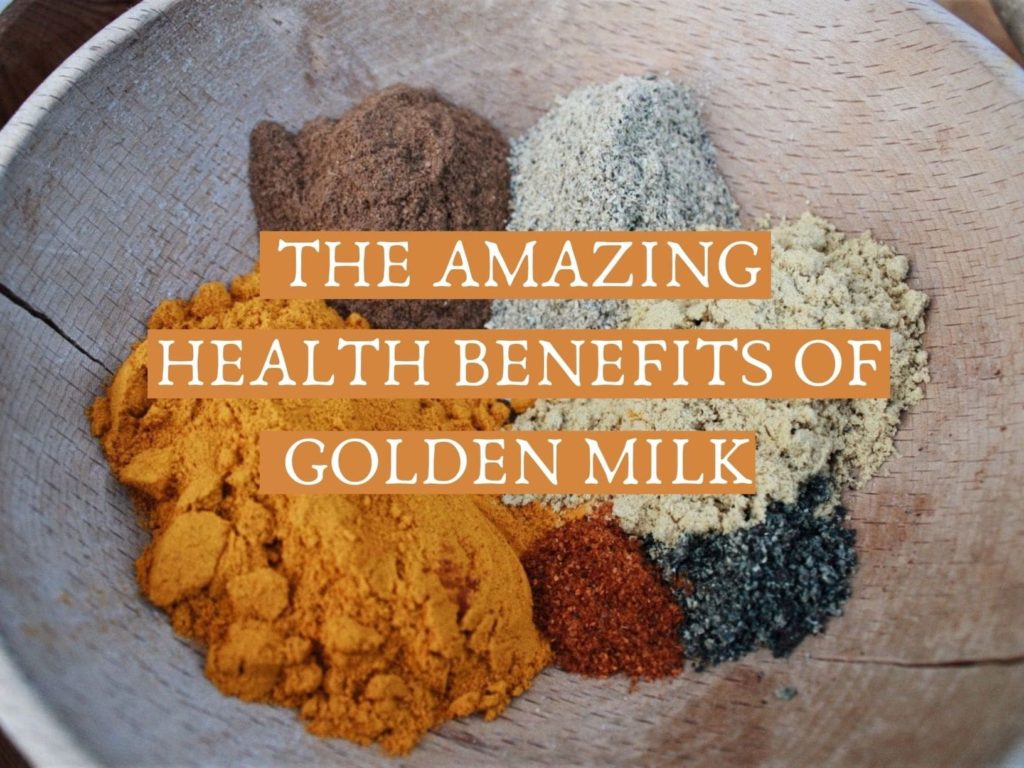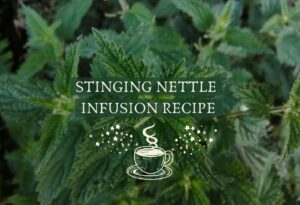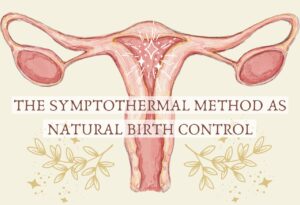The health benefits of the Indian beverage Golden milk… Golden milk has become one of my favorite beverages! The taste of this creamy, spicy and sweet drink is guaranteed to make you feel all warm and cozy, especially on a cold rainy morning or winter evening.
Not only is it delicious, golden milk also has a lot of health benefits! The health benefits of golden milk are mainly because of the different spices that are used in it. Some of those spices are turmeric, black pepper, ginger, cinnamon and cardamom.
For me, knowing the health benefits of what I eat or drink increases the pleasure of drinking it! So I did some research and also quickly discovered there is loads of information out there about the health benefits of golden milk and the different spices used in it.
In this post you can read about the most known scientific proven healing properties of the spices in golden milk. Enjoy! (Also, here is a recipe to make your own Golden milk!)
Turmeric
- Anti-oxidant
- Anti-inflammatory
- Antimicrobial
- Antimutagenic & Anticancer properties
- Anti-diabetic
The main ingredient in golden milk is turmeric (Curcuma longa). Turmeric is a spice that has been used for thousands of years all over the world for both cooking and medicinal uses. It contains substances called curcuminoids, which also gives turmeric its yellow color. Various studies have shown that curcuminoids are very beneficial to our health and that they prevent many types of diseases. Curcuminoids have antioxidant, anti-inflammatory, antimicrobial, antimutagenic, anti-diabetic and anticancer properties.
Most of the health benefits are recognized to be from the antioxidant and anti-inflammatory effects. As we know, free radicals damage our cells, which leads to inflammation which then can lead to malfunctioning of the body or development of several illnesses. Antioxidants fight free radicals and so prevent inflammation from occurring in the body. Also curcuminiods regulates inflammation by down-regulating the activity of several components involved in inflammation.
However, our body doesn’t absorb curcuminoids well and it is rapidly eliminated out of our bodies. Although, combined with other substances, its absorption can be increased (this is where the black peppers comes in!).
Black pepper
- Increases the absorption combined with other nutrients
- Anti-oxidant
- Anti-inflammatory
- Anti-allergic properties
- Promotes digestion
Black pepper (Piper nigrum) is often referred to as ”The king of spices”. It contains a substance called piperine, which also is the main active substance. Piperine enhances the absorption of certain compounds and nutrients, for example the curcuminoids in the turmeric. Paired with turmeric, piperine increases the absorption of curcuminoids by 2000%!
Piperine works as an anti-oxidant by inhibiting free radicals and thereby protecting against damage caused by them. It also has anti-inflammatory effects by reducing pro-inflammatory cytokines (small proteins that aid the communications between cells) and by inhibiting certain enzymes that are necessary in the production of pro-inflammatory transmitters, so that they are unable to cause inflammation, pain and fever.
Further, research has shown that piperine has anti-allergic effects by inhibiting histamine release and suppressing allergic airway inflammation. Also it promotes digestion by increasing the activity of digestive enzymes and increasing gastric & bile acid secretion.
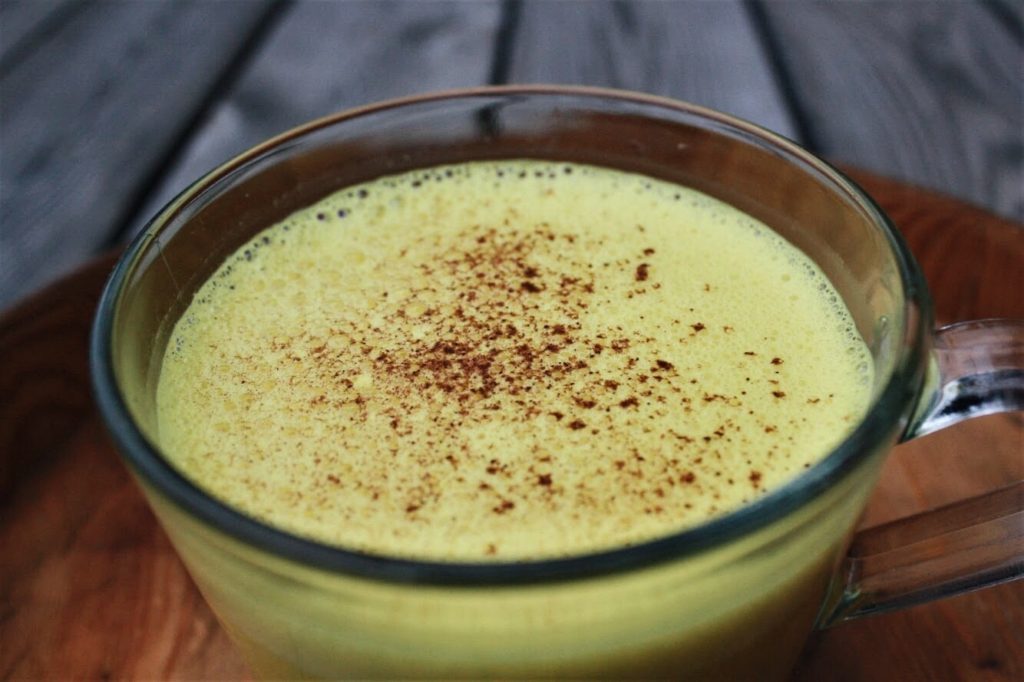
Ginger
- Helps against nausea and vomiting
- Antioxidant
- Anti-inflammatory
- Anti-cancer properties
- Helps against muscle pain, joint pain and arthritis
- Prevents ageing and degenerative diseases
Ginger (zingiber officinale) has two main bio active components called gingerol and shogaol. Ginger can prevent early ageing and the arising of degenerative diseases. Oxidative stress and inflammation are two things that contribute to the development of age related degenerative diseases. Like many other herbs ginger has both antioxidant and anti-inflammatory effect. That is why ginger can prevent aging and the diseases that arise due to ageing.
Ginger is therefor also effective against exercise-induced muscle pain, joint pain and arthritis caused by inflammation, as gingerol suppresses the activity of inflammatory cytokines. Also studies and experiments show that gingerol has anti-cancer properties, due to the substance 6-gingerol, which is found a lot in raw ginger.
One of gingers best known properties is to help against nausea and vomiting. Studies prove that the intake of ginger helps with morning sickness due to pregnancy, nausea after surgery and chemo-therapy related nausea.
Cinnamon
- Antibacterial
- Anti-fungal properties
- Antioxidant
- Anti-inflammatory
- Lowers blood sugar levels, anti-diabetic effects
- Neuroprotecting properties
Cinnamon (Cinnamomum zeylanicum) is a delicious smelling spice that reminds me of Christmas! Except that it smells divine, the spice also has a lot of health benefits. Its main components are cinnamaldehyde and eugenol. Cinnamon is antibacterial and anti-fungal because both cinnamaldehyde and eugonol attacks viruses, bacteria and other organisms that causes diseases inside the body.
Cinnamon is high in polyphenols, which is a strong antioxidant. The polyphenol extract in cinnamon regulates pro-inflammatory gene expression, therefor cinnamon has anti-inflammatory effects. Cinnamon also possesses neuroprotective properties by inhibiting harmful build-up in the brain.
The intake of cinnamon is also good for blood glucose control. Human studies show that several components in cinnamon decrease blood sugar levels and increases insulin sensitivity. After you’ve eaten a meal, cinnamon interferes with several digestive enzymes which leads to a slower breakdown of carbohydrates and therefor a slower uptake of glucose into the bloodstream.
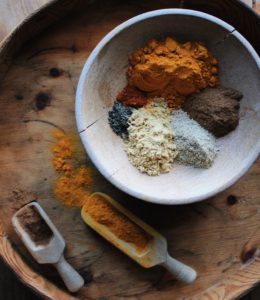
Cardamom
- Antioxidant
- Anti-inflammatory
- Lowers blood pressure
- Helps with digestion
- Antibacterial & antiseptic
Cardamom (Elettaria cardamomum). You either love it or hate it. I personally love it and think cinnamon buns are not the same without it (in Sweden the original recipe of cinnamon buns includes cardamom but not everybody likes it)!
It has a lot of different health benefits and one of them is that it can treat bad breath by killing bacteria in the mouth. This is because of the major active component of cardamom oil, called cineole, is working antiseptic which means that it kills and slows down the growth of microorganisms. Except for fighting mouth bacteria, cardamom also is antibacterial and therefor also effectively kills other bacteria such as E.coli.
Cardamom is rich in antioxidants, which helps the body to fight inflammation and therefor also can protect us from chronic diseases caused by long term inflammation. Studies also show that cardamom effectively lowers blood pressure after eating three grams of cardamom per day for 12 week straight. This is likely because of the many antioxidants present in the cardamom, as antioxidants have the ability to lower high blood pressure.
Further, cardamom has the ability to give protection against digestive problems. Studies show that a cardamom (along with turmeric and sembung leaf) has the ability to reduce the severity of stomach ulsters in rats.
So that is it! A way to seize all the beautiful health benefits of golden milk is to start drinking it! In India it has been used for centuries against ailments of different kinds. You can include the drinking of it in your morning ritual, enjoy a warm mug of it on a cozy rainy day or chilly winter morning, or a calm evening before bedtime to help you wind down.
Here is a recipe on how to make Golden milk!
Sources:
- Sun J. L., Ji H. F., Shen L. (2019). Impact of cooking on the antioxidant activity of spice turmeric. Food Nutr Res, 31(63). doi: 10.29219/fnr.v63.3451
- Hewlings S. J., Kalman D. S. (2017). Curcumin: A Review of Its’ Effects on Human Health. Foods, 6(10). doi: 10.3390/foods6100092.
- Jurenka J. S. (2009). Anti-inflammatory properties of curcumin, a major constituent of Curcuma longa: a review of preclinical and clinical research. Altern Med Rev, 14(2):141-53.
- Jiang T. A. (2019). Health Benefits of Culinary Herbs and Spices. Journal of AOAC International, 102(2). https://doi.org/10.5740/jaoacint.18-0418
- Zhang F., Thakur K,. Hu F., Zhang J. G., Wei Z. J. (2017). Cross-talk between 10-gingerol and its anti-cancerous potential: a recent update. Food Funct. 1(8). doi: 10.1039/c7fo00844a
- Mohd Sahardi N., Makpol S. (2019). Ginger (Zingiber officinale Roscoe) in the Prevention of Ageing and Degenerative Diseases: Review of Current Evidence. Evid Based Complement Alternat Med, 20(2019). doi: 10.1155/2019/5054395
- Kirkham S., Akilen R., Sharma S., Tsiami A. (2009). The potential of cinnamon to reduce blood glucose levels in patients with type 2 diabetes and insulin resistance. Diabetes Obes Metab, 11(12). doi: 10.1111/j.1463-1326.2009.01094.x.
- Peterson D. W., George R. C., Scaramozzino F., LaPointe N. E., Anderson R.A., Graves D.J., Lew J. (2009). Cinnamon extract inhibits tau aggregation associated with Alzheimer’s disease in vitro. J Alzheimers Dis,17(3). doi: 10.3233/JAD-2009-1083.
- Kirkham S., Akilen R., Sharma S., Tsiami A. (2009). The potential of cinnamon to reduce blood glucose levels in patients with type 2 diabetes and insulin resistance. Diabetes Obes Metab, 11(12). doi: 10.1111/j.1463-1326.2009.01094.x.
- Ortiz M. C., Manriquez M. C., Romera J. C., Juncos L. A. (2009). Antioxidants block angiotensin II-induced increases in blood pressure and endothelin. Indian J Biochem Biophys,46(6):503-6.
- Sharma R. (2012). Cardamom comfort. Dent Res J (Isfahan, 9(2): 237.
- Agnihotri S., Wakode S. (2010). Antimicrobial Activity of Essential Oil and Various Extracts of Fruits of Greater Cardamom. Indian J Pharm Sci, 72(5). doi: 10.4103/0250-474X.78542
- Mutmainah., Susilowati R., Rahmawati N., Nugroho A. E. (2014). Gastroprotective effects of combination of hot water extracts of turmeric (Curcuma domestica L.), cardamom pods (Ammomum compactum S.) and sembung leaf (Blumea balsamifera DC.) against aspirin-induced gastric ulcer model in rats. Asian Pac J Trop Biomed, 4(1). doi: 10.12980/APJTB.4.2014C97
SUBSCRIBE TO EARTHY VIBES
Then you’ll like Earthy Vibes newsletters!
Read our Privacy Policy.

